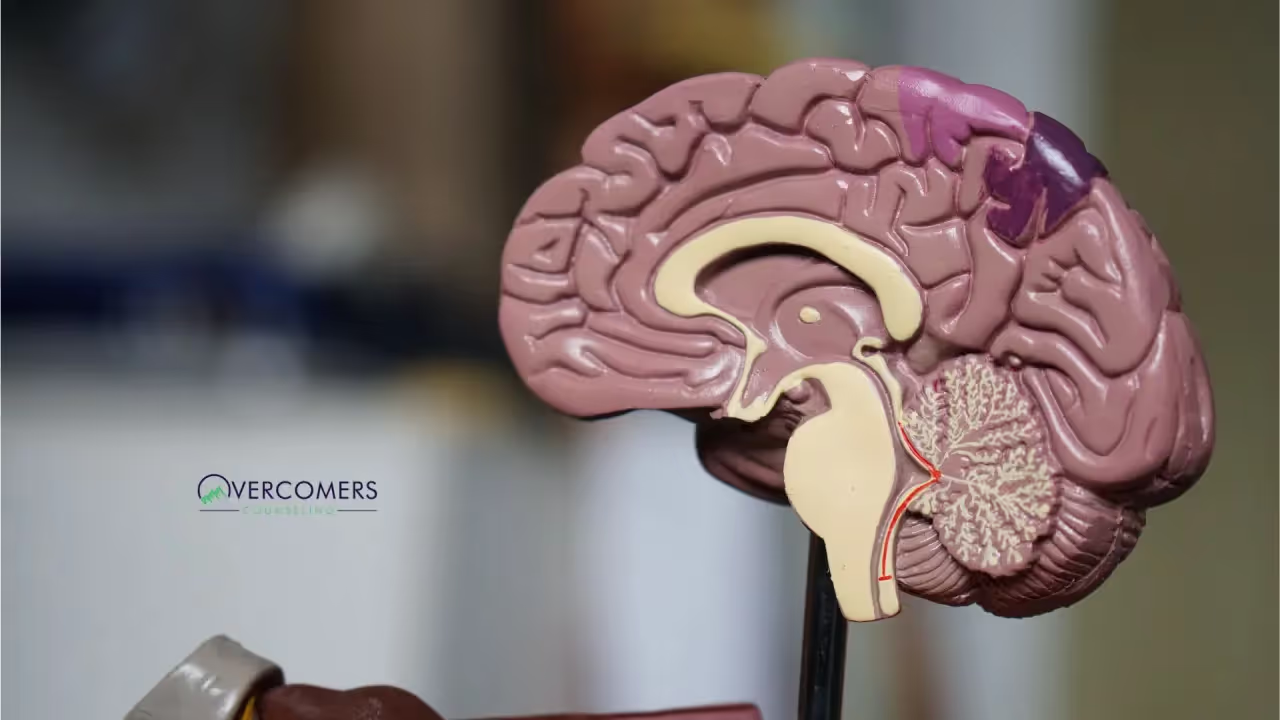Bipolar disorder is a mental illness characterized by episodes of depression and periods of mania.Sometimes the effects of these bipolar episodes are so...

Bipolar disorder is a mental illness characterized by episodes of depression and periods of mania.Sometimes the effects of these bipolar episodes are so intense that they often lead to physical symptoms in the body.So, it's essential to learn about both the mental and physical effects of bipolar disorder on the body.This will help you understand how the disorder affects your overall well-being, the best treatment plan for you, and how best you can support bipolar disorder for others in need.One of the ways bipolar disorder affects the body is that it targets the brain, a part of the central nervous system.Your central nervous system consists of a series of nerves working together to control several body functions and brain activity.Bipolar disorder can therefore be linked to irritability, inability to concentrate, severe sadness, aggression, and other side effects.Also, bipolar disorder indirectly affects the skeletal and muscular systems.Depression episodes, for instance, may have adverse effects on the human body, thus causing symptoms such as weakness, tiredness, headaches, etc.In addition, symptoms of bipolar disorder, such as irritability, anxiety, and tiredness, can affect the gastrointestinal system and lead to side effects such as nausea, vomiting, and weakness.Read on to learn more about the effects of bipolar disorder on the body.
The brain, which is a component of your central nervous system, is the main organ affected by bipolar illness.The central nervous system comprises the spine and brain and is composed of a succession of nerves that control various body activities and functions.Thus, one of the physical effects of bipolar disorder on the body is that it affects how the central nervous system operates.Some of the effects include overactivity, low attention span, being overly defensive, proactiveness, guilt, hopelessness, being overly happy, severe sadness, irritability, forgetfulness, etc.Bipolar disorder can also affect your ability to concentrate.When in a manic episode, you might find it difficult to control your thoughts, and your mind might start to race.On the other hand, during a depressive episode, your thinking may become slower than usual, and you may experience memory impairment.Similarly, bipolar disorder can disrupt your sleeping pattern.When you experience manic episodes, you might sleep a lot less; however, depressive episodes often necessitate more sleep than usual.Sleeplessness is a common occurrence in both phases, and this can be problematic for people with bipolar disorder.
The effects of bipolar disorder on the body aren't limited to brain functioning only.Certain co-occurring conditions of bipolar disorder, such as anxiety, can adversely impact your cardiovascular system.This part of the body comprises the blood vessels and heart, making it among the most vital systems in the human body.When experiencing anxiety during a bipolar episode, you may also experience an increased pulse, heart rate, and heart palpitations, which can be detrimental to your physical health.Symptoms associated with depressive episodes can also increase the chances of exposure to heart diseases.According to research conducted by American Heart Association, different forms of depression, including mania depression associated with bipolar disorder, may lead to heart palpitations or rapid heart rate.This inadvertently lowers the quantity of blood circulating to the heart and causes the adrenal glands to release a hormone known as cortisol.If treatment is delayed, these symptoms may lead to heart disease.Thus, early diagnosis and treatment of bipolar disorder are crucial.

Your endocrine system is composed of hormones that strongly rely on messaging signals sent from the brain.In cases where these signals encounter an interruption, hormone fluctuation often occurs.Thus, studying the endocrine system functioning of a bipolar person allows you to understand better the effects of bipolar disorder on the body,Bipolar disorder has several effects on this system, but the most common is a low sex drive. Reduced libido mainly occurs in bipolar people experiencing depressive episodes.On the other hand, if you're experiencing manic or hypomanic episodes, there's a tendency to have an increased interest in sexual activity or higher libido, which may cause you to make impulsive or rash sexual decisions.You may simultaneously develop other impulsive behaviors such as gambling, reckless driving, rash spending, poor decision-making, and so on associated with manic depressive illness.You may also experience weight loss as a side effect of bipolar disorder, especially during a depression phase.Depressive episodes often cause a decrease in appetite, thus resulting in weight loss.However, there's also a possibility to have the opposite effect: you might have a larger appetite leading to weight gain.
The effect of bipolar disorder on the body can also be seen in the skeletal and muscular systems, as depressive episodes and mania phases can indirectly impact your bones and muscles.For instance, depression in bipolar disorder may cause unexpected body aches and joint pain, making it difficult to feel comfortable or function properly.You may also experience difficulty working out or participating in other physical activities.Moreover, if you experience bipolar depressive or hypomanic episodes, you may feel weak and fatigued most of the time, followed by over-sleeping or an inability to sleep.Bipolar disorder is also linked to other skeletal conditions, such as sarcopenia.Researchers believe that oxidative stress, which is associated with bipolar disorder, causes the development of sarcopenia.One way to minimize oxidative stress is to include plenty of antioxidants, vegetables, fruits, and other healthy food in your diet.However, a depressive or manic episode can make it difficult to follow a balanced diet and get enough antioxidants to combat oxidative stress.
Due to the symptoms associated with bipolar episodes, your gastrointestinal system may be affected.For instance, bipolar disorder can increase your irritability, tiredness, and anxiety levels, thus indirectly impacting your digestive system.Thus, one of the effects of bipolar disorder on the body is that it affects the normal functioning of your gastrointestinal system.Also, symptoms of bipolar disorder, such as stress and anxiety, can leave you feeling nervous and irritated and eventually cause nausea, diarrhea, abdominal pain, or vomiting.These sensations are often accompanied by a sense of looming doom or panic.You may also experience rapid breathing or profuse sweating due to these stomach problems.In addition, some researchers believe that abnormal gut health and inflammation are causative factors of bipolar disorder itself.Current research on the link between these two conditions can help affected people control both psychological and physical symptoms of bipolar disorder.
Contrary to popular myths, bipolar disorder is much more than a mood destabilizing disorder.It can potentially affect different areas of your body and cause significant side effects.It is thus important to be aware of the physical and mental impacts of this condition to provide support for bipolar disorder for those in need.Physical effects of bipolar disorder on the body occurs in the central nervous system, cardiovascular system, endocrine sysytem, gastrointestinal system, and skeletal and muscular system.
https://www.altaloma.com/how-can-bipolar-disorder-affect-you-physically/
Supporting someone with bipolar disorder starts with compassion, patience, and a solid understanding of what they’re navigating. Offer steady emotional support, encourage them to stay connected to treatment, and avoid taking their symptoms personally. And remember, caring for yourself matters too. Overcomers Counseling can help guide both you and your loved one through these ups and downs.
Five common signs of bipolar disorder include dramatic shifts in mood, energy, and activity levels. This often shows up as episodes of mania—high energy, excitement, or irritability—and episodes of depression marked by sadness or hopelessness. Other signs may include disrupted sleep, racing thoughts, and impulsive or risky decisions. If these sound familiar, Overcomers Counseling can help you sort through the noise and find clarity.
There isn’t one single cause of bipolar disorder—it’s usually a blend of genetics, brain chemistry, and life experiences like stress or trauma. Think of it as a complex puzzle with several interconnected pieces. When you’re ready to make sense of those pieces, Overcomers Counseling is here to help you put the picture together.
Absolutely. Bipolar disorder may be a lifelong companion, but with consistent treatment and support—like the kind offered at Overcomers Counseling—you can build a life that feels steady, healthy, and genuinely yours. Think of it like learning to drive on a windy mountain road: tricky at first, but totally manageable with the right guidance.
Living with bipolar disorder can feel like riding a roller coaster you didn’t exactly sign up for—episodes of deep depression on one end and bursts of high energy or euphoria on the other. Everyone’s experience looks a little different, and at Overcomers Counseling, we recognize that your story deserves to be understood on its own terms.